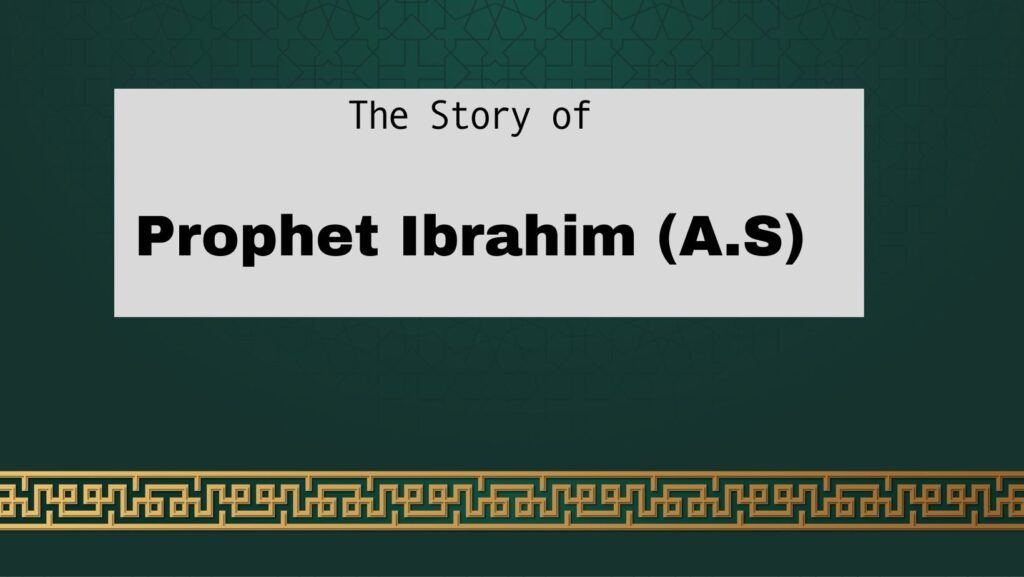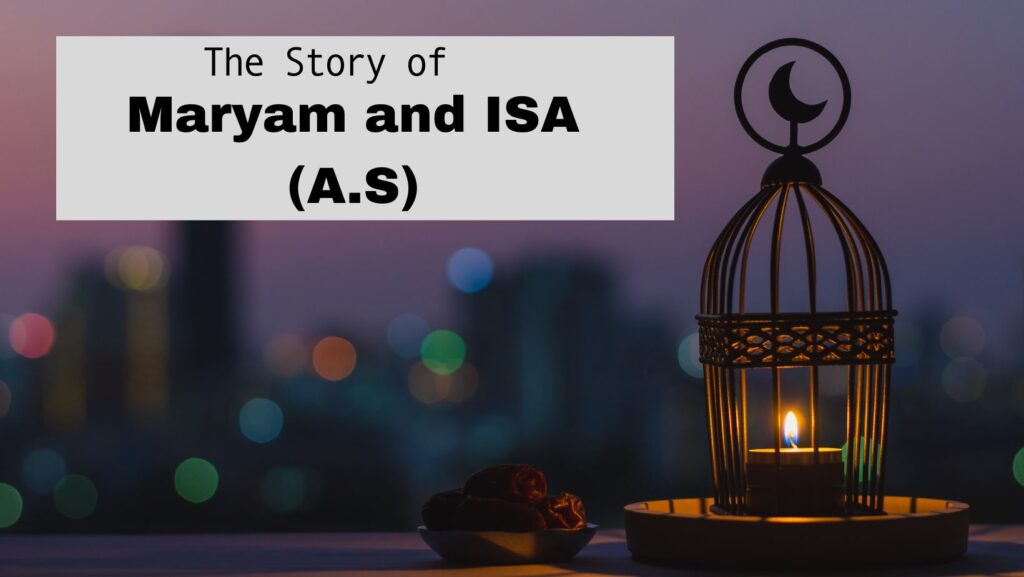Islamic Stories اسلامی کہانیاں – Stories of Virtue
"Unveiling the Tapestry: Exploring the Profound Wisdom of Islamic Stories"

Islamic Stories
Islamic stories, rooted in the Quran and Hadith, are narratives that encapsulate the lives of prophets, historical events, and parables. These stories serve as a cornerstone of moral, ethical, and spiritual guidance for Muslims. Featuring revered figures such as Prophet Ibrahim, Prophet Yusuf, and others, these tales convey profound lessons on faith, resilience, compassion, and the consequences of actions. They are a source of inspiration and enlightenment, offering timeless wisdom that resonates with individuals seeking a deeper understanding of their faith. These narratives, passed down through generations, contribute to the rich cultural and religious heritage of Islam, fostering a connection between believers and the divine principles embedded in these stories.
- Asad Name Meaning In Islam
- Khwab Ki Tabeer In Islam – Full Guide
- Can You Pray with Fake Nails in Islam?
Introduction:
Islamic stories have long served as a source of inspiration, moral guidance, and cultural heritage for millions of people around the world. Rooted in the rich tapestry of Islamic tradition, these narratives convey profound lessons that transcend time and geography. The stories found in the Quran and Hadith, as well as those passed down through generations, offer valuable insights into human nature, morality, and the relationship between individuals and the divine.
The Story of Prophet Ibrahim (Abraham):

One of the most revered figures in Islamic tradition, Prophet Ibrahim’s life is a testament to unwavering faith and submission to the will of Allah. The story of Ibrahim’s willingness to sacrifice his son, Isma’il, at the command of God, demonstrates the ultimate test of faith. It serves as a powerful reminder of the importance of trust in divine wisdom and the willingness to make sacrifices for a higher purpose.
Lesson: Trust in Allah’s plan, even when faced with seemingly insurmountable challenges.
The Tale of Prophet Yusuf (Joseph):

The story of Prophet Yusuf is a captivating narrative of resilience, morality, and forgiveness. Betrayed by his own brothers and unjustly imprisoned, Yusuf’s steadfast devotion to righteousness ultimately leads to his rise to power in Egypt. The reunion with his family and forgiveness for his brothers exemplify the transformative power of compassion and forgiveness.
Lesson: Uphold moral values in the face of adversity, and embrace forgiveness as a means of healing.
The Parable of the People of the Cave:

The story of the People of the Cave (Ashab al-Kahf) is a tale of faith, courage, and divine protection. Fleeing religious persecution, a group of young believers seeks refuge in a cave. Allah miraculously preserves them for centuries, illustrating the divine protection granted to those who remain steadfast in their faith.
Lesson: Persevere in faith, even in challenging times, and trust in the divine protection that comes to those who remain steadfast.
The Wisdom of Luqman:

The narrative of Luqman the Wise, as mentioned in the Quran, imparts timeless wisdom through the advice he imparts to his son. Luqman’s teachings cover various aspects of life, including gratitude, humility, and the importance of seeking knowledge. His counsel serves as a guide for ethical living and personal development.
Lesson: Embrace wisdom, gratitude, and humility as essential virtues in leading a meaningful and purposeful life.
The Story of Maryam (Mary) and Isa (Jesus):

The Quranic account of Maryam and the miraculous birth of Isa holds a special place in Islamic tradition. Maryam’s piety and devotion, coupled with the divine miracle of Isa’s birth, highlight the extraordinary nature of faith and the power of divine intervention.
Lesson: Trust in Allah’s miracles and appreciate the significance of unwavering faith in the face of life’s mysteries.
Conclusion:
Islamic stories are not merely tales of the past but reservoirs of wisdom that continue to guide and inspire people today. These narratives offer profound insights into the complexities of human existence, encouraging individuals to cultivate virtues such as faith, resilience, compassion, and wisdom. As individuals reflect on these stories, they find a source of moral and spiritual nourishment that transcends cultural boundaries, fostering a deeper understanding of the universal principles embedded in Islamic tradition.
FAQs
What are Islamic stories?
Islamic stories refer to narratives found in Islamic scripture, including the Quran (the holy book of Islam) and Hadith (sayings and actions of Prophet Muhammad). These stories often feature prophets, historical events, and parables that convey moral and spiritual lessons.
Why are Islamic stories important?
Islamic stories play a crucial role in conveying moral, ethical, and spiritual teachings to Muslims. They provide guidance on how to lead a righteous life, make ethical decisions, and strengthen one’s relationship with Allah. Additionally, these stories serve as a means of cultural transmission and preserving the historical and religious heritage of Islam.
Who are the central figures in Islamic stories?
The central figures in Islamic stories include prophets and messengers, such as Adam, Noah, Abraham, Moses, Jesus, and Muhammad. Each prophet’s story carries unique lessons and highlights different aspects of faith, morality, and human conduct.
What are some common themes in Islamic stories?
Common themes in Islamic stories include monotheism (belief in one God), morality, justice, compassion, patience, gratitude, and the consequences of disobedience. The stories often emphasize the importance of faith, perseverance in the face of adversity, and the ultimate accountability to Allah.
How do Muslims use Islamic stories in their daily lives?
Muslims use Islamic stories as a source of guidance in their daily lives. They may turn to these narratives for moral and ethical insights, draw inspiration during challenging times, and seek lessons on how to navigate various aspects of life. Islamic stories also play a role in religious education for children, helping instill core values and beliefs.
Are Islamic stories exclusive to Muslims?
While Islamic stories hold particular significance for Muslims, the moral and ethical lessons embedded in these narratives can be appreciated by people of various faiths. Many of the themes, such as compassion, justice, and the importance of faith, are universal and resonate with a broad audience.
How are Islamic stories transmitted through generations?
Islamic stories are traditionally transmitted through oral traditions, where parents, scholars, and community leaders share these narratives with younger generations. Additionally, written texts, including the Quran and collections of Hadith, serve as primary sources for these stories. Today, digital media and educational programs also contribute to the dissemination of Islamic stories.
Can Islamic stories be interpreted differently?
Yes, Islamic stories can be subject to various interpretations. Different scholars and individuals may emphasize different aspects or draw distinct lessons from the same narrative. Islamic jurisprudence encourages thoughtful and scholarly interpretation, leading to a rich tapestry of understanding that accommodates diverse perspectives within the framework of core Islamic beliefs.
Are there contemporary lessons to be learned from Islamic stories?
Absolutely. While the historical context of Islamic stories is important, their teachings are often timeless and can be applied to contemporary challenges. Muslims may find guidance in these stories when dealing with issues such as social justice, ethical business practices, family dynamics, and personal development.
Are there specific rituals associated with recounting Islamic stories?
Reciting or listening to Islamic stories is often integrated into Islamic traditions, especially during religious gatherings, educational settings, or family time. Some rituals include the recitation of specific verses from the Quran or the recounting of stories during religious festivals and events. These rituals serve to reinforce the importance of these narratives in the lives of Muslims.





